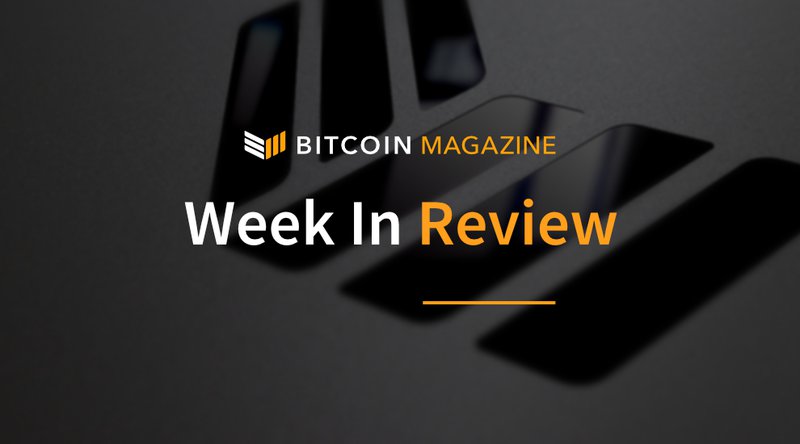Bitcoin Magazine’s Week in Review: Fortunes and Fallacies

This week, leading South Korean crypto exchange Bithumb experienced a major hack, while Mt Gox, the most notorious exchange to be hacked in bitcoin history, is also back in the news.
In Switzerland, the Bank of International Settlements is spreading some misinformation about digital currencies and blockchains; meanwhile, attorney Pamela Morgan is in the U.S. sharing great information regarding how you can plan for cryptoasset inheritance. In China, the asset management firm Reality Shares is giving investors access to blockchain-based companies at the forefront of this brave new world.
Featured stories by Jimmy Aki, Shawn Gordon, Nick Marinoff and David Weiss.
Stay on top of the best stories in the bitcoin, blockchain and cryptocurrency industry. Subscribe to our newsletter here.
“No Grounding In Reality”: BIS Report Tells A Strange Crypto Story
This week, the Bank of International Settlements (BIS) in Switzerland issued a new document as part of its annual economic report that warns citizens of the dangers of digital currencies. Many leaders in the crypto community have argued that the BIS is incorrect in much of what it seems to state as fact.
“The report is correct about price stability and potential scaling issues,” Jeremy Gardner, CEO of Ausum Ventures, told Bitcoin Magazine. “The rest is garbage.”
As for the rest, the article dredges up old arguments about Bitcoin mining’s energy consumption and the vulnerability of centralized exchanges. In sum, it covers very little new ground and shows a narrow understanding of blockchain technology.
South Korean Bithumb Exchange Loses $30M in Latest Cryptocurrency Hack
Hackers have reportedly made away with cryptocurrencies worth $30 million from South Korean cryptoexchange Bithumb. The company has stated on Twitter that they would be compensating the affected users.
Leading Bithumb writes in a blog update, “Due to security issues; we are changing our system regarding deposits of cryptocurrency. All of our customers should stop depositing cryptocurrency until we notify that it is safe to deposit cryptocurrency.”
Till Death Do Us Fork: Planning for Cryptoasset Inheritance
Think ahead to the days right after your last days on earth. How qualified is your will’s executor to manage your balance sheet of bitcoin, ether, Ripple, ZenCash and Ada? Are your loved ones ready to receive your private keys and open your hardware wallet? A recent episode of The Tatiana Show podcast tackled this question in an interview with Pamela Morgan, Esq., who’s been working exclusively with Bitcoin and open blockchains since 2014. The impetus for the appearance was the publication of her new book, Cryptoasset Inheritance Planning: A Simple Guide for Owners.
Asset Management Firm Launches Chinese Blockchain ETF
Asset management firm Reality Shares is launching China’s first blockchain ETF, which gives investors access to Chinese companies at the forefront of the blockchain revolution. The Index, will focus on China-based companies that are fully invested in blockchain technologies. Created as a joint partnership between Reality Shares and Nasdaq in January, the fund will “identify and invest” in such companies that are applying blockchain technology as the “first native digital medium of value.”
Mt. Gox Creditors to Be Reimbursed in Bitcoin Under Civil Rehabilitation
The Japan-based Mt. Gox exchange had its bankruptcy stayed due to a petition filed by some of the creditors for the commencement of civil rehabilitation proceedings in Tokyo District Court on November 24, 2017, and heard on June 22, 2018.
At issue primarily is the exchange rate of bitcoin at the time of the hack, approximately $480 per bitcoin. By staying in criminal bankruptcy, the creditors would have been paid back at the exchange rate at the time of the filing; but bitcoin has risen in value significantly since then, trading at over $6,100 per bitcoin today. This change means that creditors could be paid in terms of the amount of bitcoin lost and not the value of the bitcoin at the time of the loss: a significant difference.
This article originally appeared on Bitcoin Magazine.


